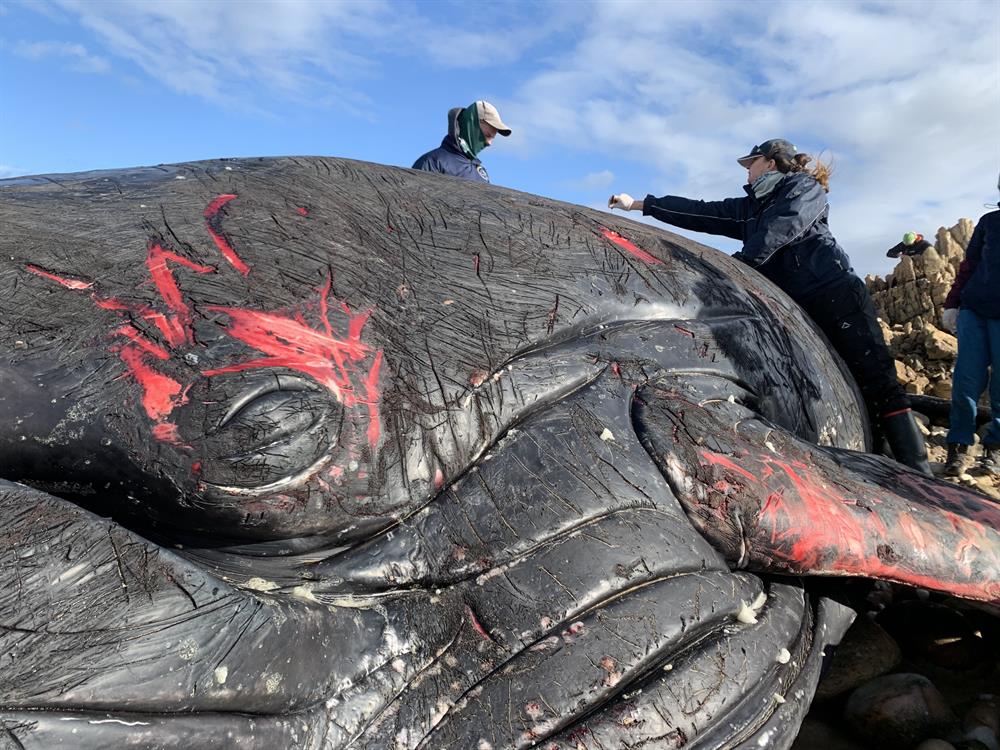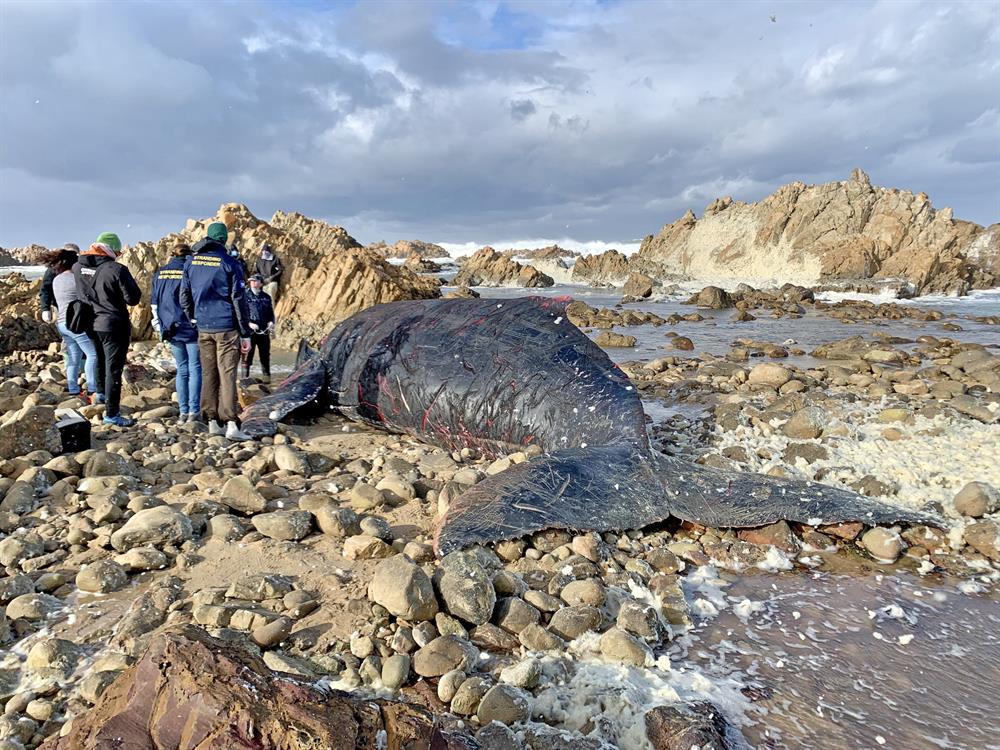KNYSNA NEWS - A juvenile humpback whale that had beached itself on Wildside Beach in Buffalo Bay last weekend died on Saturday 15 August, and the carcass has been left for nature to take its course.
The whale, measuring about 8m in length and between 2-3 years old, is believed to have beached sometime in the afternoon on Saturday, and the NSRI Station 12 in Knysna was informed in the hopes they could assist.
According to the Sea Rescue Knysna Facebook page, however, they were unable to do so due to the extreme weather conditions and huge sea swell. They then referred the management of the scene to CapeNature as well other relevant local authorities.
The Plettenberg Bay Disentanglement Network's Stranding Response Team was later also called to the site for assistance.
According to marine biologist Dr Gwen Penry, the whale initially showed no immediate signs of harm. "There was no indication of any external injuries to the whale, so it is extremely difficult to try and determine just how the whale managed to beach itself in between all the rocks," she said, noting that the adverse sea conditions experienced during the weekend may have played a role.
 Chris King, member of the Plettenberg Bay Disentanglement Network's Stranding Response Team, collects samples from the carcass.
Chris King, member of the Plettenberg Bay Disentanglement Network's Stranding Response Team, collects samples from the carcass.
According to CapeNature's Petro van Rhyn, aside from the weather conditions, the rock gully in which the whale had beached played a large role in their inability to help the creature back out to sea, and also means they cannot move the carcass.
"All parties were consulted prior to making a final decision and it was determined that any rescue attempt would be extremely dangerous to rescuers and impossible to succeed due to storm conditions with heavy seas. In addition, the position of stranding, which is in a shallow rocky bay with shallow entrance gullies and extensive exposed reef between the sea and the whale, would make moving the 2.5 ton animal impossible."
 Stranding Response Team members collect samples from the carcass.
Stranding Response Team members collect samples from the carcass.
The whale eventually died at about 18:00 on Saturday evening. Penry explained that they were unable to conduct a full postmortem on the carcass, but that they did collect samples from the whale to use for studies and research.
She further noted that a whale carcass can take a few months to decompose, but that with the sea conditions expected in the week or two to come, the process could be helped somewhat. "The conditions should see the water beat the carcass hard, and hopefully break it up into chunks as it decomposes, making it easier for the carcass to wash out to sea eventually."
 The whale's carcass will be left to decompose on site. Photos: Dr Berend Maarsingh
The whale's carcass will be left to decompose on site. Photos: Dr Berend Maarsingh
'We bring you the latest Knysna, Garden Route news'
















